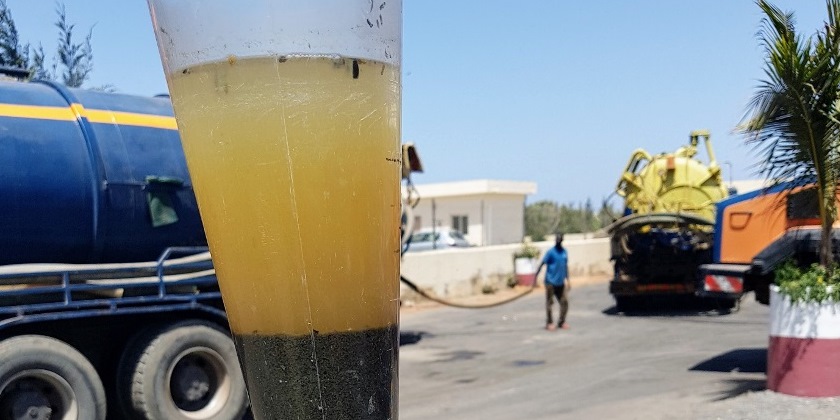Department Sanitation, Water and Solid Waste for Development
Solid-Liquid Separation of Faecal Sludge: Understanding Governing Mechanisms for Improved Global Sanitation

This research focuses on elucidating the mechanisms that control settling and dewatering of faecal sludge. The effect of Extracellular polymeric substances, particle properties, surface charge and microbial community on the settling and dewatering properties of faecal sludge is being investigated. The outcome of the investigation will provide the basis for the modelling and prediction of solid-liquid separation of faecal sludge based on influent sludge characteristics. Online measurements of the influent sludge characteristics can be used to predict conditioner dosages to enhance faecal sludge dewatering.
Context:
Globally, 40% of the population is served by onsite sanitation, and the management of faecal sludge from onsite sanitation are desperately needed. Onsite sanitation is only recently acknowledged as a viable long-term solution, and consequently research lags substantially behind wastewater treatment. Solid-liquid separation is one of the greatest obstacles in developing management solutions, as faecal sludge consists of over 95% water. Identifying and understanding the mechanisms regulating solid-liquid separation is required prior to the development of solutions for adequate treatment, and cost-effective transportation.
Goal:
The goal of this project is to understand the governing mechanism of solid liquid separation in faecal sludge. Improved dewatering of faecal sludge will enhance collection and transport in urban settlements and ensure the development of high throughput and low footprint technologies.
